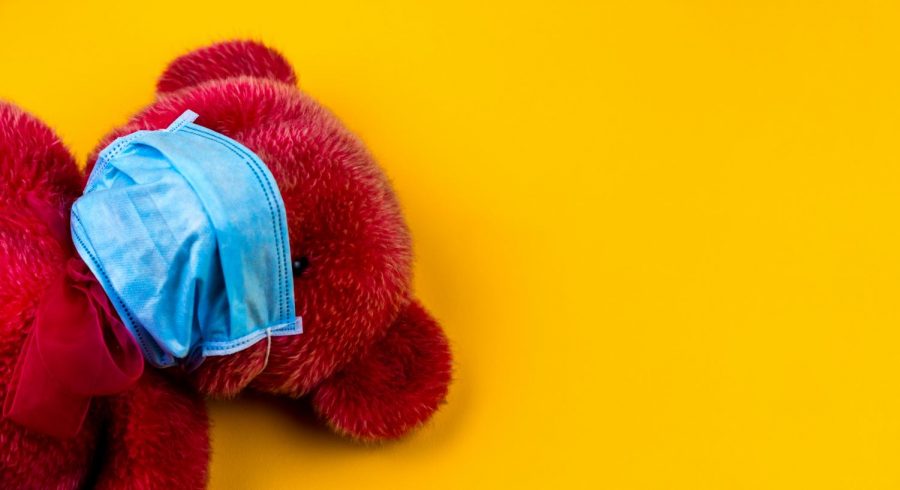Should You Make Jokes About COVID-19?
The coronavirus poses very serious situations. Does that mean there’s nothing worth making light of? (Photo/Volodymyr Hryshchenko/Unsplash)
April 30, 2020
There’s no denying that the coronavirus can be scary sometimes. As of April 21, 177,000 people have died due to the respiratory virus. That’s no laughing matter. But that doesn’t mean humor has vanished. If anything, over the past few months, there’s been an upwelling of jokes regarding the crisis. But why is it that we laugh during this pandemic, and why do we need to continue doing so?
Humor has always been a way of understanding the world we live in. In a cold, dark, scary world, humor is what keeps us from panicking. As freshman David Cohen aptly puts it, “[humor can] take away some of the realism from this hard time.” We laugh at coronavirus because the alternative is to fear it. Humor allows us to momentarily forget about our worries. In a world where we have to wear masks to the grocery store and stay six feet apart from strangers, laughter is a precious commodity.
But humor can be more than just slapstick. By laughing at the absurdity of lockdowns and social distancing, we allow ourselves to confront regulation in a way that harms nobody. Imagine how much more dull quarantine would be if you weren’t allowed to complain about it and make jokes at its expense. Humor allows us to take some control in an otherwise hopeless situation.
Possibly most critically of all, humor allows us to connect with each other. Jokes are a shared experience between the teller and the recipient. By telling a joke that both parties can relate to, both feel a bit less alone, and if nothing else, humor helps us bond, even when we’re locked in our own houses.
One concern with the widespread rise of jokes regarding COVID-19 is that it desensitizes us to the risks and effects of the disease. But as freshman Neha Khandkar argues, “We have the media coverage or newspapers to keep us grounded, and we face the effects of it every day.” If anything, humor also draws our minds to the crisis, just in a more optimistic manner.
Now, one PDS student, who has elected to remain anonymous, has also claimed humor “undermines all the suffering people around the world.” While on some levels that is true, for the most part, humor about coronavirus is just poking fun at the more harmless aspects of social distancing. Corona humor is about binging ungodly amounts of Netflix or buying obscene quantities of toilet paper. While humor can occasionally be cruel, for the time being, it’s relatively benign. And there’s a simple reason why: we don’t generally find cruel things as funny. We don’t laugh at the fact that rates of domestic abuse have gone up due to enforced lockdown. We don’t laugh at the fact that the amount of deaths worldwide due to the coronavirus has eclipsed the amount of Americans who died in World War I. We don’t laugh at the fact that the amount of hate crimes against Asians and Asian-Americans is rising. As important as humor is, there are some things we just can’t laugh about.
Despite this, we still need to laugh. Laughter is our shield, our sword, and our banner. It protects us, lets us take control and unites us. But, most importantly, it sure beats reading death figures.








